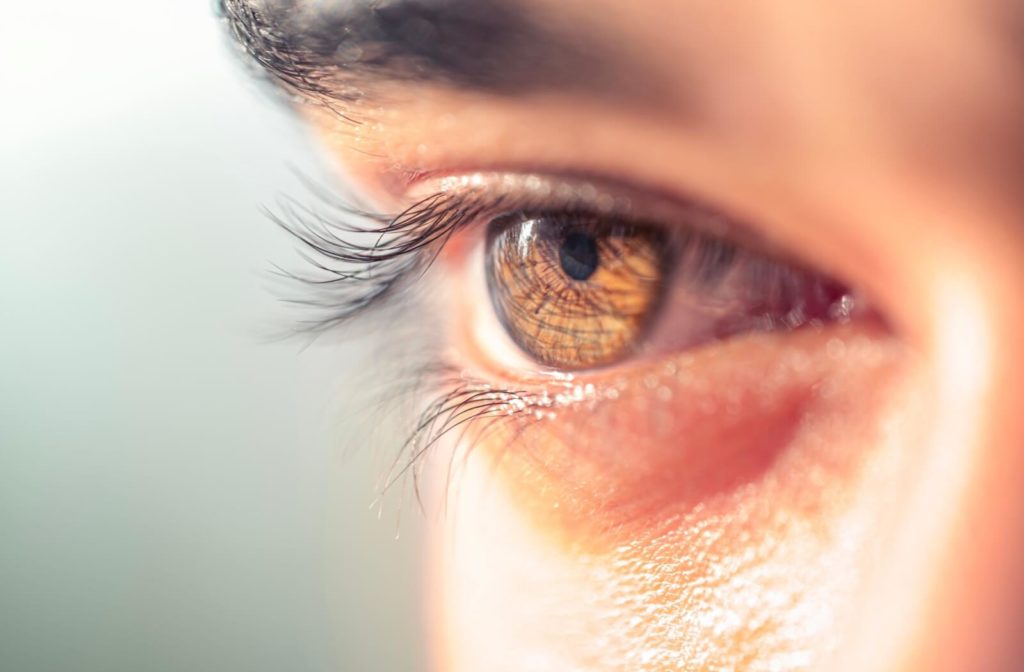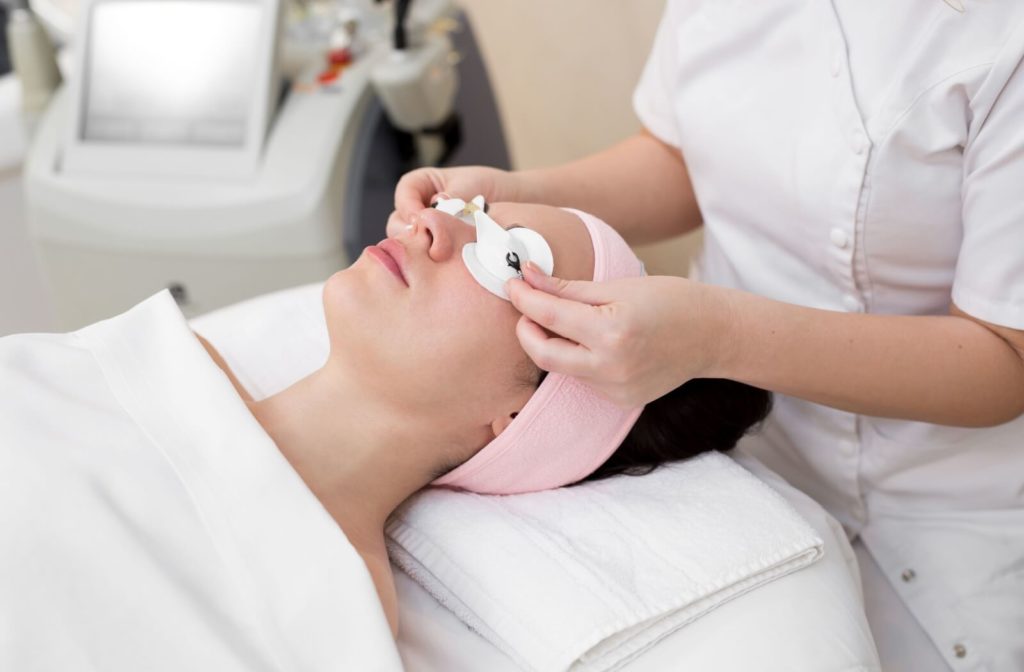If you’re one of the millions who suffer from dry eye, you know it’s more than just an occasional inconvenience. The constant discomfort, irritation, and visual disturbances can significantly impact your quality of life and eye care.
But what if there was a way to manage this condition effectively? Enter Intense Pulsed Light (IPL) therapy, a promising solution that’s been gaining traction in the world of eye care. IPL uses a broad spectrum of light to target and treat the underlying causes of dry eye. In this blog, we’ll explore how IPL can be an effective treatment for dry eye.
What is Dry Eye?
Before we dive into IPL, let’s understand dry eye itself. Dry eye occurs when your eyes don’t produce enough tears or when the tears evaporate too quickly. This can lead to symptoms like:
- Burning sensation
- Itchiness
- Redness
- Blurred vision
- Sensitivity to light
Common causes include aging, hormonal changes, environmental factors, and prolonged screen time. Traditional treatments range from artificial tears to prescription medications, but not all of them offer long-term relief.
What is IPL for Dry Eye?
Intense Pulsed Light (IPL) therapy, a technique long utilized in the field of dermatology, has proven effective in treating various skin conditions, including rosacea and acne. This innovative approach leverages a broad spectrum of light to penetrate the skin, addressing the root causes of these conditions by reducing inflammation and promoting healing.
Recently, the application of IPL therapy has expanded beyond dermatology into the realm of ophthalmology, offering a promising treatment option for patients suffering from dry eye syndrome. Dry eye, characterized by insufficient moisture and lubrication in the eye, can lead to discomfort, irritation, and blurred vision.
IPL therapy targets the meibomian glands, which play a crucial role in maintaining a healthy tear film, by using specific wavelengths of light to unclog these glands and restore normal function. This not only alleviates the symptoms of dry eye but also addresses one of its underlying causes, offering long-term improvement for sufferers.

How Does IPL Work for Dry Eye Treatment?
Step 1: Initial Assessment
Your eye care specialist will first conduct a thorough examination to determine the severity of your dry eye. This may include a tear film analysis and a check for meibomian gland dysfunction (MGD), a common cause of dry eye.
Step 2: Preparing for the Procedure
Before the procedure, a cooling gel is applied to the treatment area (around the eyes). You’ll also wear protective goggles to shield your eyes from the intense light pulses.
Step 3: The IPL Treatment
The specialist will use a handheld device to deliver precise pulses of light to the skin around your eyes. These pulses help to:
- Reduce inflammation
- Unblock meibomian glands
- Improve oil production in your tear film
Step 4: Post-Treatment Care
After the session, you might experience slight redness or warmth around the treated area, but this usually subsides within a few hours. Your eye care provider will give you post-treatment instructions to ensure optimal results.
Benefits of IPL for Dry Eye
1. Long-Lasting Relief
One of the most significant advantages of IPL therapy is its potential for long-lasting relief. Unlike artificial tears that provide temporary moisture, IPL addresses the root causes of dry eye.
2. Improved Meibomian Gland Function
IPL helps to unclog and rejuvenate the meibomian glands, which are responsible for producing the oily layer of your tear film. This is crucial for preventing tear evaporation and maintaining eye moisture.
3. Reduced Inflammation
IPL has anti-inflammatory properties that can reduce the redness and swelling often associated with dry eye. This helps to improve overall eye comfort and vision clarity.
4. Non-Invasive
Unlike surgical options, IPL is a non-invasive procedure with minimal downtime. You can return to your daily activities almost immediately after the treatment.
Who is a Good Candidate for IPL?
Intense Pulsed Light (IPL) therapy can offer significant benefits, but it’s important to note that it’s not a one-size-fits-all solution. Ideal candidates for this treatment typically share certain characteristics. These include individuals who:
- Experience moderate to severe dry eye symptoms that impact their daily life, indicating a need for more advanced treatment options.
- Suffer from meibomian gland dysfunction, a common underlying cause of dry eye, where the glands responsible for producing the oil layer of the eye’s tear film are blocked or not functioning properly.
- Have not found relief with traditional treatments, such as over-the-counter eye drops or warm compresses, suggesting their condition requires a more targeted approach to address the root cause of their symptoms.
Always consult with your eye care specialist to determine if IPL is the right option for you.
Considering IPL to Mitigate Your Dry Eye Symptoms?
Dry eye can be a persistent and frustrating condition, but it doesn’t have to control your life. IPL therapy offers a promising solution by targeting the underlying causes of dry eye, providing long-lasting relief. If you’re tired of the constant discomfort and looking for an effective treatment, consider talking to your eye care provider about IPL.
Take the first step towards clear, comfortable vision today. Learn more about how IPL can transform your dry eye treatment plan with Bayside Eye Care in Barrie, ON.
For more insights on eye care and dry eye treatment, stay tuned to our blog and don’t hesitate to reach out with any questions or to schedule a consultation.



